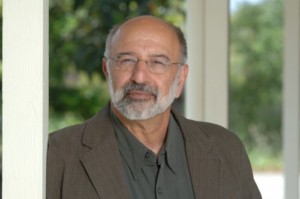
Raymond F. Paloutzian received his Ph.D. from Claremont Graduate School and is Professor Emeritus of experimental and social psychology at Westmont College, Santa Barbara, California. He has been a visiting professor at Stanford University and the Faculty of Psychology, Katholieke Universiteit Leuven, Belgium. His books include Invitation to the Psychology of Religion (2nd ed. 1996; 3rd ed. 2016, Guilford), Forgiveness and Reconciliation: Psychological Pathways to Conflict Transformation and Peace Building (Springer, 2009/2010 paper, co-edited with Ani Kalayjian), and the Handbook of the Psychology of Religion and Spirituality, 2nd ed. (Guilford, 2013, co-edited with Crystal Park). He is editor of The International Journal for the Psychology of Religion and consultant in the Religion, Experience, and Mind Lab Group at the University of California, Santa Barbara.
With the strength of a research method, there is a corresponding weakness. And these weaknesses turn out to be overcome by the strengths of other, “opposite” kinds of methods. This joint Religious Studies Project SSSR session was a symposium that included four presentations, all focused on some variation on the topic of “religious experiences,” a category better described as experiences deemed religious (EDRs; Taves, 2009). Beyond that idea in the symposium summary, the only similarity among the presentations was that that they were almost purely descriptive.
This work is licensed under a Creative Commons Attribution- NonCommercial- NoDerivs 3.0 Unported License.
The views expressed in podcasts, features and responses are the views of the individual contributors, and do not necessarily reflect the views of The Religious Studies Project or our sponsors. The Religious Studies Project is produced by the Religious Studies Project Association (SCIO), a Scottish Charitable Incorporated Organisation (charity number SC047750).